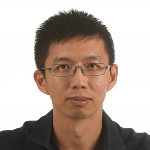SINGAPORE -China has devoted itself to resolving tensions on the Korean peninsula brought about by North Korea's nuclearisation efforts, said a member of the Chinese delegation to an annual security conference on Saturday (June 3).
Speaking at the Shangri-La Dialogue 2017, retired major-general Yao Yunzhu said China has a major responsibility to stop North Korea from obtaining nuclear weapons, as a permanent member of the United Nations Security Council.
"China will not be a bystander in the nuclear issue," said Ms Yao, who is director emeritus of the Centre on China-American Defence Relations at the People's Liberation Army's Academy of Military Science in China.
She was one of four speakers at a session on nuclear dangers in the Asia-Pacific.
North Korea has ramped up its missile tests, most recently firing at least one short-range ballistic missile on Monday (May 29) that landed in the sea off its east coast.
Ms Yao said North Korea's nuclearisation efforts "pose a safety challenge" to China as well.
She called for a resumption of six-party talks - a series of multilateral negotiations to dismantle North Korea's nuclear programme attended by China, Japan, North Korea, Russia, South Korea, and the United States.
She also urged the US and South Korea to suspend their military exercises to reduce tensions on the Korean peninsula, and said China is open to suggestions to restore stability.
Panellist Shigeo Yamada, a cabinet councillor of Japan's National Security Secretariat, called for the international community to be united in exerting more diplomatic, economic and military pressure on North Korea.
His comments come after the UN Security Council on Friday unanimously adopted a US-drafted resolution to impose more sanctions on North Korea over its nuclear and ballistic missile programmes.
Like Mr Yamada, panellist Ha Jungyul, the vice-chairman of the policy committee of the Democratic Party of Korea, said strengthening the alliance with the US is key to preventing the outbreak of nuclear war.
He said North Korea has to freeze its nuclear program, and eventually scrap it.
The final panellist, Mr Jean-Christophe Belliard, who is deputy secretary-general for political affairs at the European External Action Service, said Europe can increase political pressure on North Korea and adopt sanctions.
He added: "If the conditions are right, the EU is in favour of dialogue."
The majority of questions during the session were directed at Ms Yao, and they ranged from whether China would be willing to impose stiffer sanctions to the Terminal High Altitude Area Defense (THAAD) missile system that the US has installed in South Korea.
On sanctions, Ms Yao expressed doubt if sanctions alone could resolve the issue, and said it has to be combined with other measures.
She also noted that China is opposed to the radar and surveillance systems in THAAD, as these would affect China's ICBM (intercontinental ballistic missile) capabilities, and in turn, the strategic stability between the US and China.


